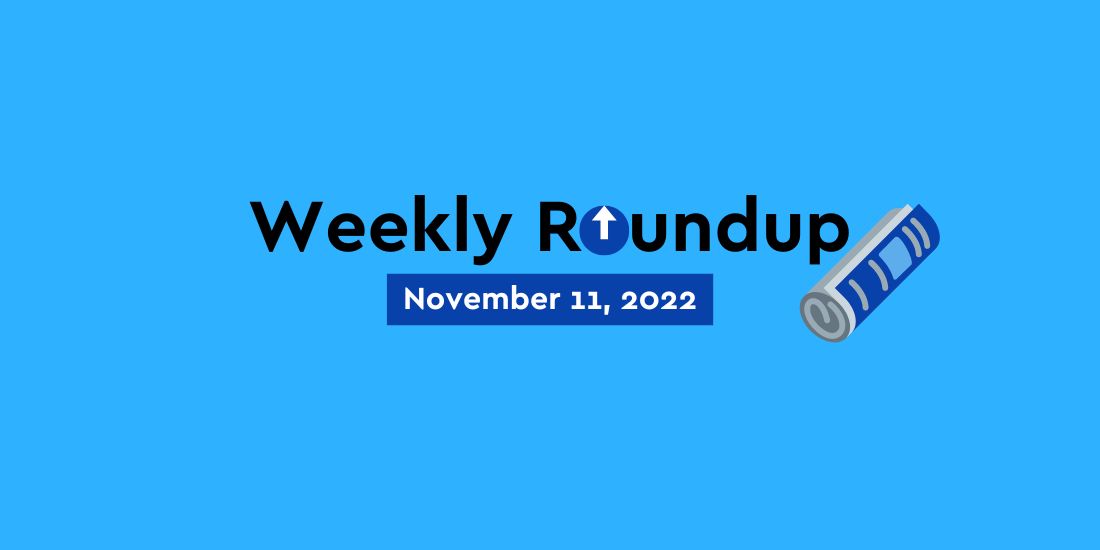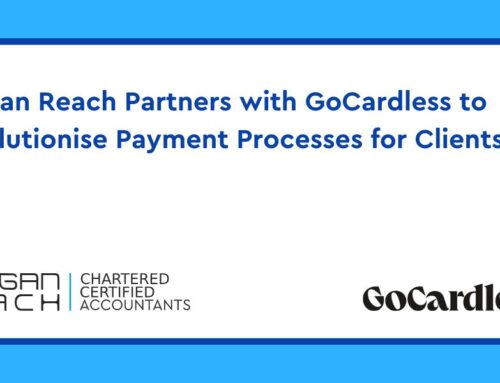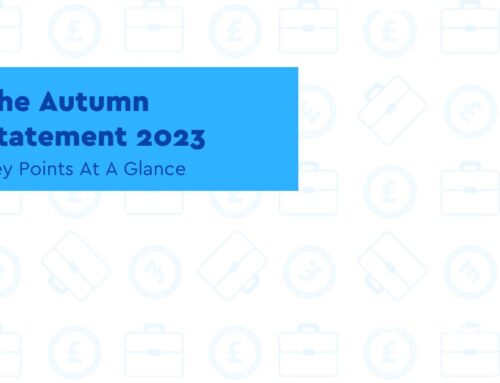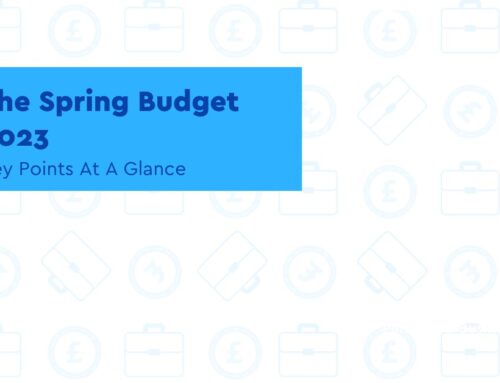News – Autumn Statement
Autumn Statement: what it means for small business
Key Points
- The Chancellor is working on a cut to the £2,000 tax-free company dividend allowance
- Under the option being modelled by the Treasury would be a 1.25 percentage point increase in dividend taxation across these three tax bands
Capital Gains Tax, hiking tax rates for dividend income and scrapping £2,000 tax-free dividend income threshold are all in the firing line in this month’s Autumn Statement.
Although no decisions have been fixed ahead of the Autumn Statement, the Chancellor is considering an increase in the headline rate of capital gains tax (CGT) and taxes on company dividends, which is how many self-employed small business owners pay themselves, as part of his plans to fill the £50bn hole in Government coffers.
Hunt has been warned that he must “think the unthinkable” to make up for the fiscal shortfall. This could include breaking the triple tax lock, a manifesto promise not to raise VAT, income tax or National Insurance over the course of this parliament. Officials recommended that he raise any one of the three taxes.
These would come on top of the Government increasing corporation tax on businesses to 25 per cent from April 2023.
Roger Barker, head of policy at the Institute of Directors, told the Financial Times: “This is going to give the impression that the government does not care about small businesses. The Treasury probably thinks this is a group that earns a lot of money, but small businesses are not big earners as a whole — and they have already been penalised during the pandemic.”
When is the Autumn Statement?
The Autumn Statement is due to take place on November 17.
How the Autumn Statement might affect small business
Capital Gains Tax
Capital Gains Tax, which small business owners pay when they sell their company, is expected to raise £15bn in 2022-23, or 1.5 per cent of all receipts.
Currently rates vary from 10 per cent to 28 per cent depending on the type of asset and the income of the taxpayer.
Hunt is also likely to extend the current freeze on the CGT annual exempt amount of £12,300 from 2025-25 until 2027-8 bringing more people into paying the tax – a concept called “fiscal drag”.
Company dividends
The Chancellor is working on a cut to the £2,000 tax-free company dividend allowance and raising the dividend tax rate, which will cost business owners and the self-employed another £1bn a year.
Some point out that taxes on company dividends mean double taxation for self-employed sole traders, as they already pay tax on company profits before the taxman dips its fingers into dividend income.
Raising dividend tax rate
Basic rate income taxpayers currently pay 8.75 per cent on dividends earned above the £2,000 allowance, while higher rate payers pay 33.75 per cent, and for additional-rate taxpayers the levy is 39.35 per cent.
Under the option being modelled by the Treasury would be a 1.25 percentage point increase in dividend taxation across these three tax bands.
Craig Beaumont, chief of external affairs at the FSB, told the Telegraph: “The rise as mooted is another deterrent to becoming an entrepreneur. Owner-managers who pay themselves through dividends were largely left out of pandemic-era income support schemes.
“Economic recovery will depend on entrepreneurship. Disincentivising this group in yet another way would be a short-sighted move from the new Chancellor, himself a former entrepreneur.”
Tax-free dividend income scrapped?
Under the current rules no tax is paid on dividend income below £2,000 but the Chancellor is mulling halving the allowance to £1,000 or even cutting it altogether.
If the dividend allowance is cut to £1,000, then a basic rate taxpayer would end up paying £87.50 more in tax, according to wealth manager Quilter.
This would rise to £337.50 for higher-rate taxpayers and £393.50 for additional-rate payers.
Scrapping the £2,000 tax-free allowance would raise £1bn for the Treasury each year, according to think tank the Institute for Public Policy Research.
Scrapping the allowance completely would see a basic-rate taxpayer charged £175 in tax on their dividends, would cost a higher-rate payer £675 and an additional-rate payer £787, according to the think tank.
The IPPR has also proposed bringing dividend tax in line with rates of income tax (20 per cent for basic-rate versus 8.5 per cent), 40 per cent for higher-rate (versus 33.75 per cent), and 45 per cent additional-rate (versus 39.35 per cent).
Combined with removing the allowance, the IPPR estimates this would generate £6bn for the Treasury every year.
Investment zones scrapped
Hunt’s predecessor Kwasi Kwarteng announced in his mini-Budget that the UK would be establishing 200 investment zones with holidays on business rates and employers’ National Insurance contributions for new workers earning less than £50,000 a year. The investment zones would have cost Government £12bn a year in lost tax revenue.
This article was derived from: https://smallbusiness.co.uk/autumn-statement-what-it-means-for-small-business-2563660/
News – Business
BCC Business Manifesto for new Prime Minister
Key Points
- Top of the list for urgent action is Investment in infrastructure and promoting export-led growth
- The BCC also highlights rising energy costs as the number one concern cited by businesses
The British Chambers of Commerce (BCC) has sent the Prime Minister a Business Manifesto to get firms through the tough months ahead and then power the UK’s economic recovery.
Businesses are the very bedrock of the economy but currently face a host of challenges which threaten the survival of many; eyewatering energy bills, labour shortages, 40-year high inflation, and rising interest rates. The Bank of England is now also forecasting a two-year recession.
The BCC’s latest Quarterly Economic Survey highlighted an alarming drop in business confidence and conditions, with key economic indicators falling back to Covid-crisis levels. One in three firms reported a decrease in cashflow, while 25% reported a decrease in domestic sales.
In the wake of the October fiscal statement, the BCC conducted a snap poll of almost 500 firms, to assess the extent to which the Chancellor’s plans would impact their investment intentions.
Overall, only 6% of businesses said they would increase their investment, while 37% said they would decrease it as a result of the fiscal statement.
The BCC’s Business Manifesto sets out 17 key policies designed to tackle the challenges facing businesses across the economy, the labour market, international trade and Net Zero.
Top of the list for urgent action are:
Investment in infrastructure
The government must prioritise long-term growth by financing public project, with a particular emphasis on green and digital infrastructure. As a result of the Multiplier Effect, investigating in public infrastructure, such as the HS2 rail link, will have a high value impact on growth; stimulating local economies and creating jobs across the UK.
Energy support for businesses
Rising energy costs is the number one concern cited by businesses. Government must provide certainty on how the energy support package will work from April so that businesses can plan for the future.
Tackling the tight labour market
There are currently 1.2 million unfilled jobs in the labour market, meaning businesses must turn new work away. The government must promote the creation of a skilled workforce by offering tax breaks to businesses that invest in training and upskilling.
Promoting export-led growth
More than a quarter (28%) of SME exporters reported decreased sales in Q3 of this year. International trade presents significant opportunities for UK businesses to expand and grow. However, barriers to trade must be removed in order to allow firms realise their full trading potential. The UK Government must work with the European Commission to reach a negotiated solution on business compliance burdens with the Protocol on Ireland/Northern Ireland.
Presenting the BCC Business Manifesto, Shevaun Haviland, Director General of the BCC, said:
“Our research indicates business confidence has plummeted to alarmingly low levels, not seen since the height of the pandemic. The political and economic uncertainty over the past few months, and the turbulent financial conditions following the Government’s mini budget have damaged this even further.
“We are now on borrowed time, and the new Prime Minister must step up to the plate. Businesses can’t afford to see Government make any knee-jerk decisions that damage long-term growth. It must create stable conditions for businesses to invest and grow, otherwise we will be starting from a very weak base to power our recovery once global economic conditions stabilise.
“With a new Government and Prime Minister at the head of the table, it is high time we saw a long-term growth plan that involves investment in people and skills; supports businesses to adapt and thrive; and builds good relationships with our global allies to get British businesses selling again.
“In the remaining period of this Parliament, the BCC urges the Government to strike the right balance for growth without compromising our great public institutions that so many of us rely on.
“People run businesses and businesses rely on people. This Business Manifesto offers solutions, including cost-free options, to get our economy moving in the right direction again.”
More information on the Business Manifesto can be found here.
This article was derived from: https://www.britishchambers.org.uk/news/2022/11/bcc-business-manifesto-for-new-prime-minister
News – Income Tax
Planned changes to Form P87
Key Points
- New additional information requirements for P87 forms will include employer PAYE reference number in section 2
- Type of industry will also be in section 2 if you’re claiming flat rate expenses
HMRC has sent out an email to alert individuals of planned changes to the Income Tax relief for employment expenses form, known as a P87.
If you’re in paid employment and want to claim tax relief on your job expenses by post, use the P87.
Changes will be implemented that will make the following information mandatory on all P87 forms. The changes are expected to come into effect at the end of the year.
New additional information requirements for P87 forms will include:
- All the details in section 1, except for the title and contact phone number which are optional
- Employer PAYE reference number in section 2 – you can get this from your Personal Tax Account, the HMRC app, P45 or P60
- Type of industry in section 2 if you’re claiming flat rate expenses
HMRC will reject any forms that do not include the required information after the date these changes take effect, which HMRC will update on shortly.
These changes are being introduced to improve customer experience. HMRC has stated that it takes longer to process forms without the required information, resulting in delayed payments.
For further information on claiming Income Tax relief for your employment expenses (P87) – click here
News – Interest Rate
How does the current Bank of England base rate affect businesses?
___________________________________
November 9, 2022
Key Points
- Interest rates are important for businesses, as funding often comes in the form of borrowing money
- When interest rates rise, things like small business loans become more expensive
The Bank of England Monetary Policy Committee meets several times a year to decide on the base interest rate.
The last time the base interest rate was this high was in 2008. What does this mean for businesses?
What do interest rates mean for businesses?
Interest rates signal how much it costs to borrow money, as well as how much savers can earn by putting money aside.
Interest rates are important for businesses, as funding often comes in the form of borrowing money. When interest rates rise, things like small business loans become more expensive. It also means more expensive mortgages.
Changes in interest rates can also affect consumer behaviour. Higher interest rates encourage saving rather than spending and are typically used in response to increasing inflation.
When the cost of goods rises due to pressures on demand, higher interest rates help relieve that pressure (in theory), as consumers hold fire on spending and taking on more debt.
We’ve mentioned ‘interest rates’ as lenders set their own rates based on a range of factors, for example the risk of not being paid back on time.
But there’s one interest rate that’s more important than all the others – the Bank of England base rate.
What is the Bank of England base rate?
The Bank of England base rate is set by the UK’s central bank. This is the rate that high street banks and other commercial lenders use when setting their own interest rates.
The Bank of England’s Monetary Policy Committee meets eight times a year, where the committee votes on any changes to the base rate.
By setting the base rate, the Bank of England can respond to changes in the UK economy.
The current Bank of England base rate is three per cent. This Bank of England interest rate decision was announced after the Monetary Policy Committee meeting on 3 November 2022.
The jump by 0.75 percentage points on 3 November is the biggest hike in the base rate since 1989.
The next Bank of England interest rate decision will be on 15 December.
Bank of England interest rate predictions
As mentioned, interest rates change according to what’s happening in the UK economy.
The last time interest rates were this high was 2008, before an era of cheap money began during the financial crisis.
That era is ending, with both the BBC and The Times reporting that analysts think the base rate could increase to 4.75 per cent next year.
While the Bank of England is responding to rising inflation, there’s the risk that the economy could slow too much if interest rates increase too quickly.
And despite the increases, interest rates aren’t keeping up with rising inflation. This means that the value of cash savings is still being eroded, as you can’t buy as much with your money.
How businesses can respond to the Bank of England base rate
The wider economy is challenging right now, which means businesses may need to revisit their business plan and pivot their strategy in response.
While what you do will vary depending on the specifics of your trade and business, here are some tips for responding to Bank of England base rate changes:
- Check your existing borrowing – it’s worth having a look at your terms and conditions to see how quickly base rate changes might affect your business, speaking to your bank if you’re not sure[Text Wrapping Break]
- Think about plans for future borrowing – if you’re wondering about financing growth, you’ll need to consider what a higher interest rate environment means for those plans – and make changes as necessary[Text Wrapping Break]
- Revisit your cash flow forecast – as well as affecting your own repayments, changes in the broader economy impact consumer behaviour, so you may need to revise your forecast – then you’ll have up-to-date information to influence your strategy[Text Wrapping Break]
- Assess your supply chain – higher interest rates affect all the businesses and clients you work with, so try to spot any problems in advance – for example, could agreeing on contracts before rates rise help fix your own costs for the foreseeable future?[Text Wrapping Break]
This article was derived from simply business: https://www.simplybusiness.co.uk/knowledge/articles/2022/11/current-bank-of-england-base-rate-for-businesses/
Latest Snippets
National Insurance reversal comes into effect
The Government’s reversal of the National Insurance contributions (NICs) increase is now in effect.
The majority of working people will begin receiving the 1.25% tax cut in their payslips from November onwards.
The rise in NICs was introduced in April as part of the health and social care levy, but was reversed by previous Chancellor Kwasi Kwarteng in the September mini-budget.
Despite the tax cut, the same levels of funding for the health and social care services will still be maintained.
The reversal follows a rise in NI thresholds in July. According to HMRC, almost 30 million people will save an average of £500 in 2023 as a result of these reforms.
However, some people may not benefit immediately from the reduction if their employers were unable to update payroll processes in time. These employees are expected to receive the tax cut by February 2023, and should benefit retrospectively once updates are applied.
HMRC raises interest on tax debt
HMRC is raising interest rates on tax debt from November 22 following the recent 0.75% increase in the Bank of England (BoE) base rate.
Interest will rise to 5.5%, in line with the base rate hike. The last time the rate changed was 11 October, when it went up by 0.5% to 4.75%.
In January, the interest rate was just 2.75%, but has since increased seven times throughout the year. This latest rate is the highest since the height of the financial crisis in 2009.
Affected taxes include corporation tax, income tax, National Insurance contributions (NICs) and inheritance tax.
The repayment interest rate on these taxes is also rising from 1.25% to 2.0%, meaning that HMRC will also pay a higher rate to customers who have overpaid or paid too early.
Get In Touch
At Morgan Reach, we understand every business needs a little help now and again-especially when it comes to the financial side of things. Therefore, to help our clients and visitors we endeavour to cover as much of the business news as possible. If you are self-employed or run a business and need assistance and advice on how these news could make a difference to you or your business, feel free to get in touch with the experts at Morgan Reach. Our business growth experts at Morgan Reach will guide you through what support is available for you or your business as well as the latest news that may affect you.







